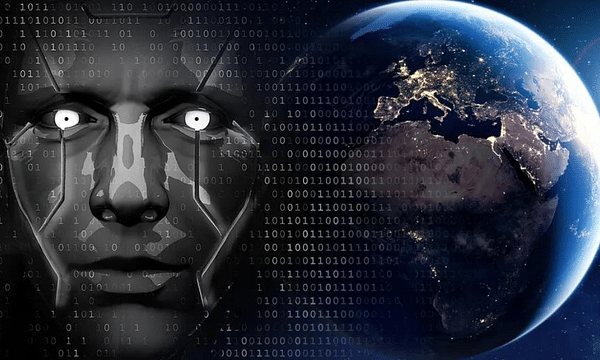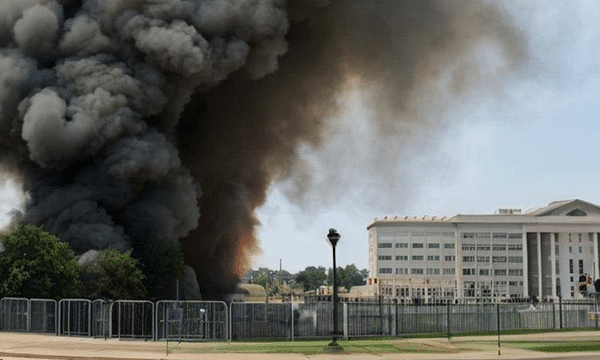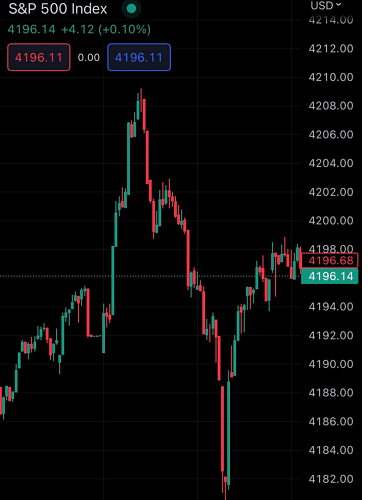Artificial intelligence is literally destroying stock markets. Manipulation, fake news and volatility, get used to it
Artificial intelligence is one of the hottest tech topics that investors are investing in en masse right now. AI and machine learning companies are raising huge amounts of capital and their stocks are soaring. But behind this investment opportunity lie potential risks for stock markets. We saw one of them this past Monday.

On Monday, news reached us that there had been an explosion at the Pentagon, which immediately began to spread across social media. This misinformation came from AI and caused chaos among users and a short-term sell-off in the US stock market.
The fake photo, showing smoke rising from the Pentagon, was circulated by state media and other accounts claiming that there had been an explosion at the complex.
It looked real enough, didn't it?

It didn't take long for this image to flood the internet. Literally everyone believed this fake photo and kept sharing it, which triggered a minor sell-off in the stock market 👇

Apparently, US stocks briefly dropped when the photo went viral, but soon recovered once it was discovered that it was a hoax. Some users pointed out that the fake Pentagon photo showed obvious signs of AI manipulation, including distorted parts of the fence.
The fear of misinformation spread by social media only underscores critics' concerns that advanced AI systems will allow bad actors around the world to spread fake news and cause chaos online.
Earlier, social media users were duped by viral images of Pope Francis wearing a fashionable Balenciaga jacket and former President Donald Trump clashing with New York police during an arrest.
In March, Elon Musk and more than 100 experts called for a six-month moratorium on the development of advanced artificial intelligence until stringent safety measures are in place. The experts warned of risks such as the spread of "propaganda and lies", the loss of jobs, the development of "inhuman minds that could eventually outsmart, outlive and replace us", and even the "loss of control over our civilisation".
Dr. Geoffrey Hinton, dubbed the "godfather of artificial intelligence," was so concerned about the potential threats of the technology that he left Google last month to speak freely without harming his former employer.
How might stock markets be affected?
First and foremost, fake news, fake photos and overall market manipulation, but we don't need to go into this in any more depth, the "Pentagon bombing" is an example.
Where is the next problem?
According to the FINRA study, AI algorithmic traders often exhibit "ultra-fast" trading and coordinated reactions to events, leading to greater volatility in the markets. FINRA has therefore issued guidance to firms that operate automated trading to ensure the integrity of the markets.
If all algorithmic traders react in the same way to economic news, market prices can move sharply. This could cause "flash crashes", where markets suddenly plummet and soon recover again.
Experts point out that complex AI systems used for trading are often 'black boxes' whose behaviour may not be fully understood or predictable. This poses the risk that these systems could manipulate markets or have other unintended consequences.
Regulators and experts are therefore calling for greater transparency and accountability in AI systems used for automated trading. Better understanding and oversight of these algorithms could help mitigate potential risks to financial stability.
Finally, the concentration on short-term gains: some argue that the trend towards AI funds is leading asset managers to think short-term. This can divert attention away from corporate health and sustainable growth, which harms equity markets in the long term.
- What do you think? Are you worried about the future of stock markets?
Please note that this is not financial advice.
This is insanely dangerous. I can't tell you how scared I am of AI. And that's in general, not just in the marketplace.
Yeah as you say, unfortunately until there is some regulation, those risks are there. I guess just don't trade so much now, or keep a little bit of a low profile. Avoid stocks where there are big swings. I don't know, we'll see, but I kind of believe there's always been more going on in the world than what we read publicly. I'm sure conspiracy theories come from at least a fraction of the truth.
You have to reckon with that, I registered this message and it scares me a bit. Unless the boundaries are put in place early and some regulation comes in, the stock markets may never be the same, and I'd be damn sorry.